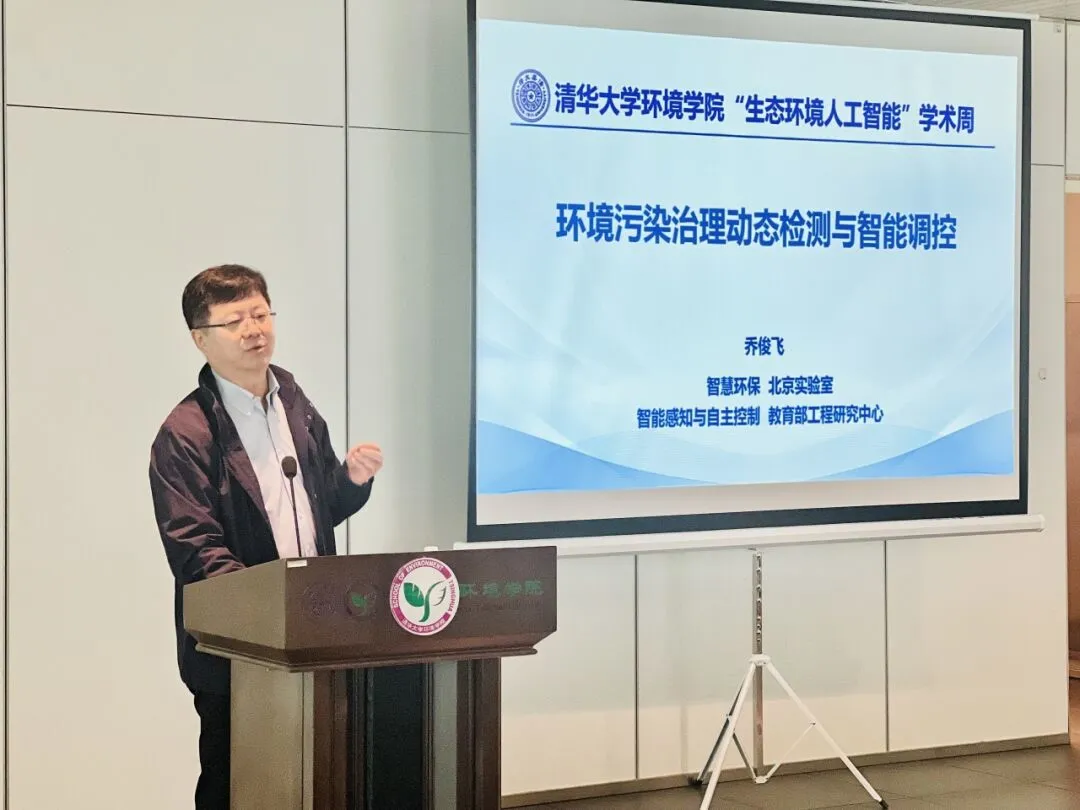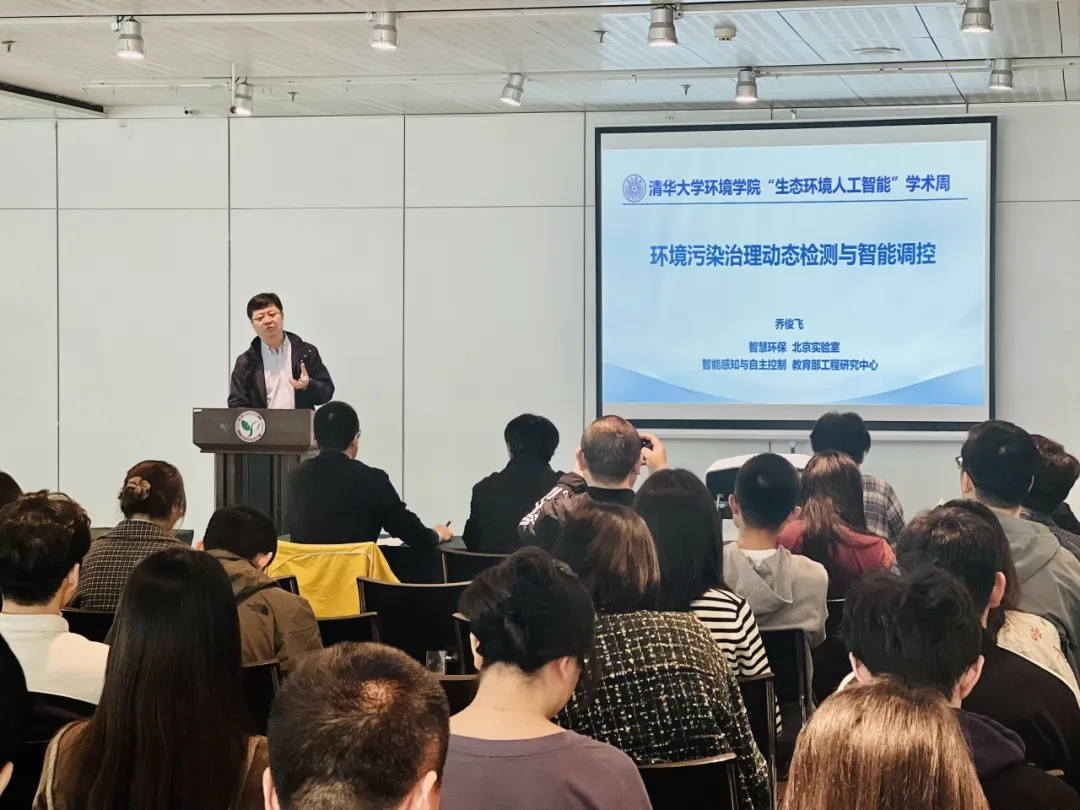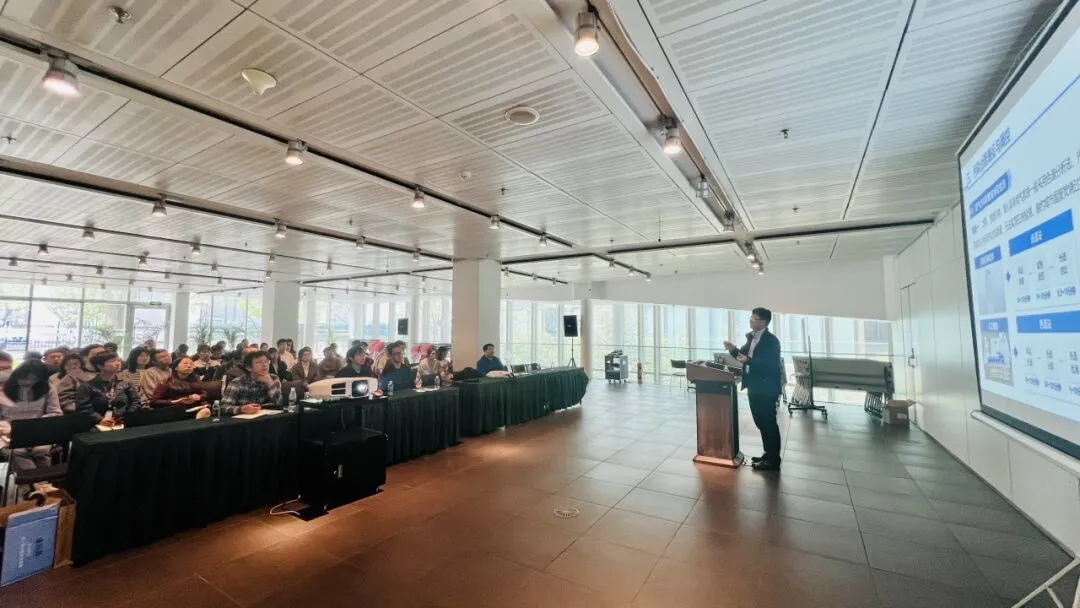On April 12th, the fourth "AI for Ecology and Environment" Academic Week Seminar was successfully held in East Hall 1 of the School of Environment (SOE), Tsinghua University as part of the "Four Decades of Environmental Science: Shaping the Future Together" series of academic activities. A special lecture titled "Dynamic Monitoring and Intelligent Regulation in Environmental Pollution Control" was delivered by Professor Qiao Junfei, Vice President of Beijing University of Technology. The event was chaired by Professor Xu Ming, SOE Associate Dean. Over a hundred faculty members and students participated in the event.

Special lecture by Qiao Junfei
Qiao Junfei delved into the strategic importance of pollution control in national strategies and the challenges it faces, including comprehensive pollution prevention and control technologies, emerging pollutants, and the competitiveness of environmental technology and equipment industries. He emphasized that in recent years, in response to the Party and the state's call to strengthen ecological civilization and further promote the nationwide battle to prevent and control pollution, it has become especially crucial to control pollution in a lawful, targeted, and science-based way. On a global scale, the development of pollution control technologies is shifting towards comprehensive, coordinated management of multiple pollutants, aiming to address complex ecological and environmental system issues. Qiao Junfei emphasized the critical role of AI in addressing complex environmental monitoring and governance issues, proposing the use of digital intelligence to achieve precision and intelligence in environmental governance.
Qiao Junfei outlined his team's innovative achievements in intelligent environmental pollution control, including advanced detection of flue gas pollutants, dynamic optimization of the incineration process, and precise control of operational variables. These advancements significantly enhance combustion efficiency and flue gas purification effects, greatly contributing to the environmental pollution control efforts.

Event venue
Professor Qiao Junfei's team's achievements provide new perspectives and methods for effectively leveraging advanced technology in the nationwide battle to prevent and control pollution. Attendees engaged in lively discussions on research highlights such as self-organized computation and heuristic dynamic optimization. Xu Ming and Qiao Junfei delved into the application prospects of generative AI during the session.

Attendees actively ask questions and exchange ideas during the session
In his conclusion remarks, Qiao Junfei pointed out that, with the rapid development of AI and big data, traditional environmental governance approaches are facing significant transformations. He noted that through technological innovation and interdisciplinary collaboration, we can better address environmental challenges, safeguard clean water and blue skies, and build a beautiful homeland, thus contributing to sustainable development goals.

Event venue





